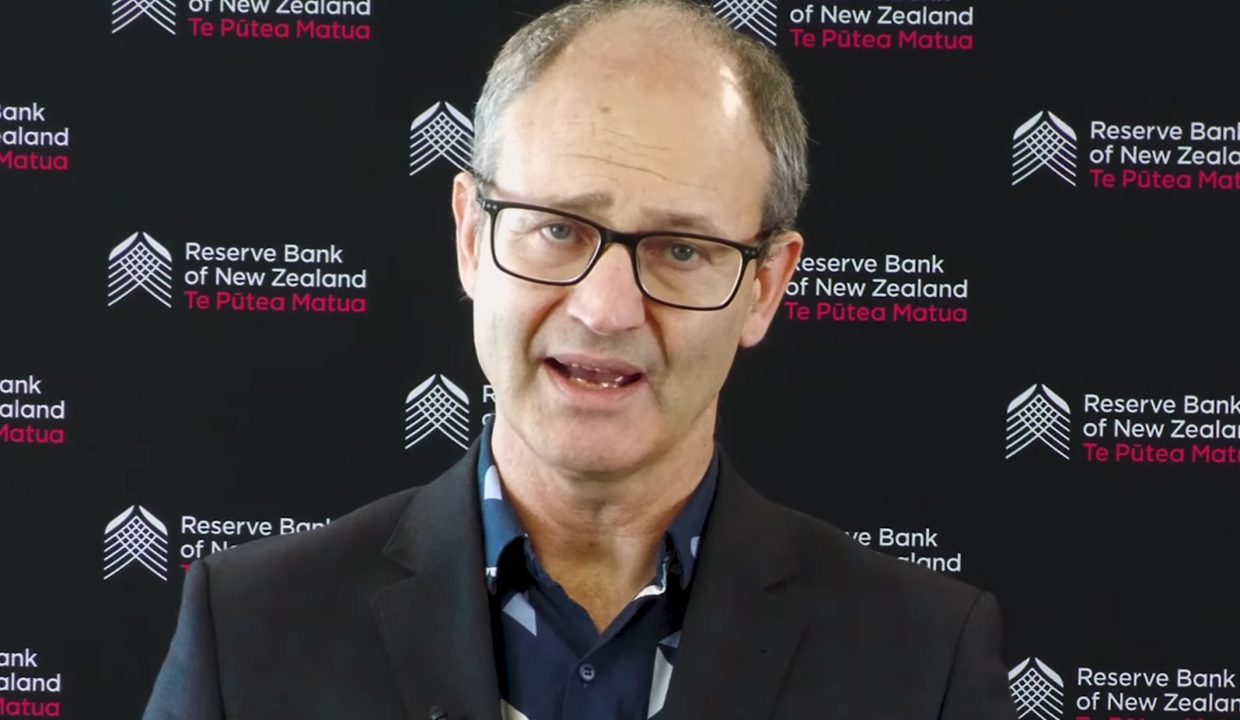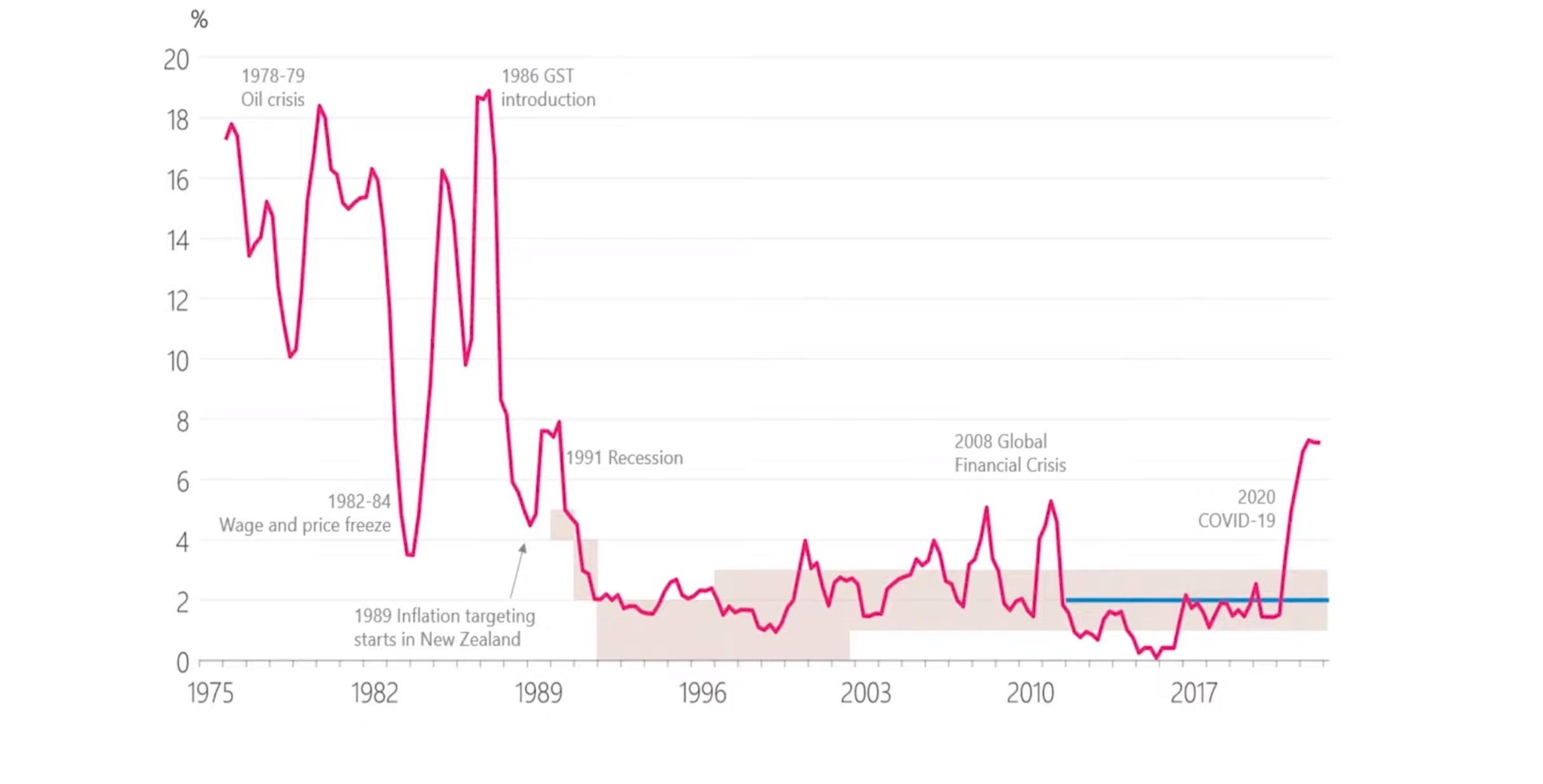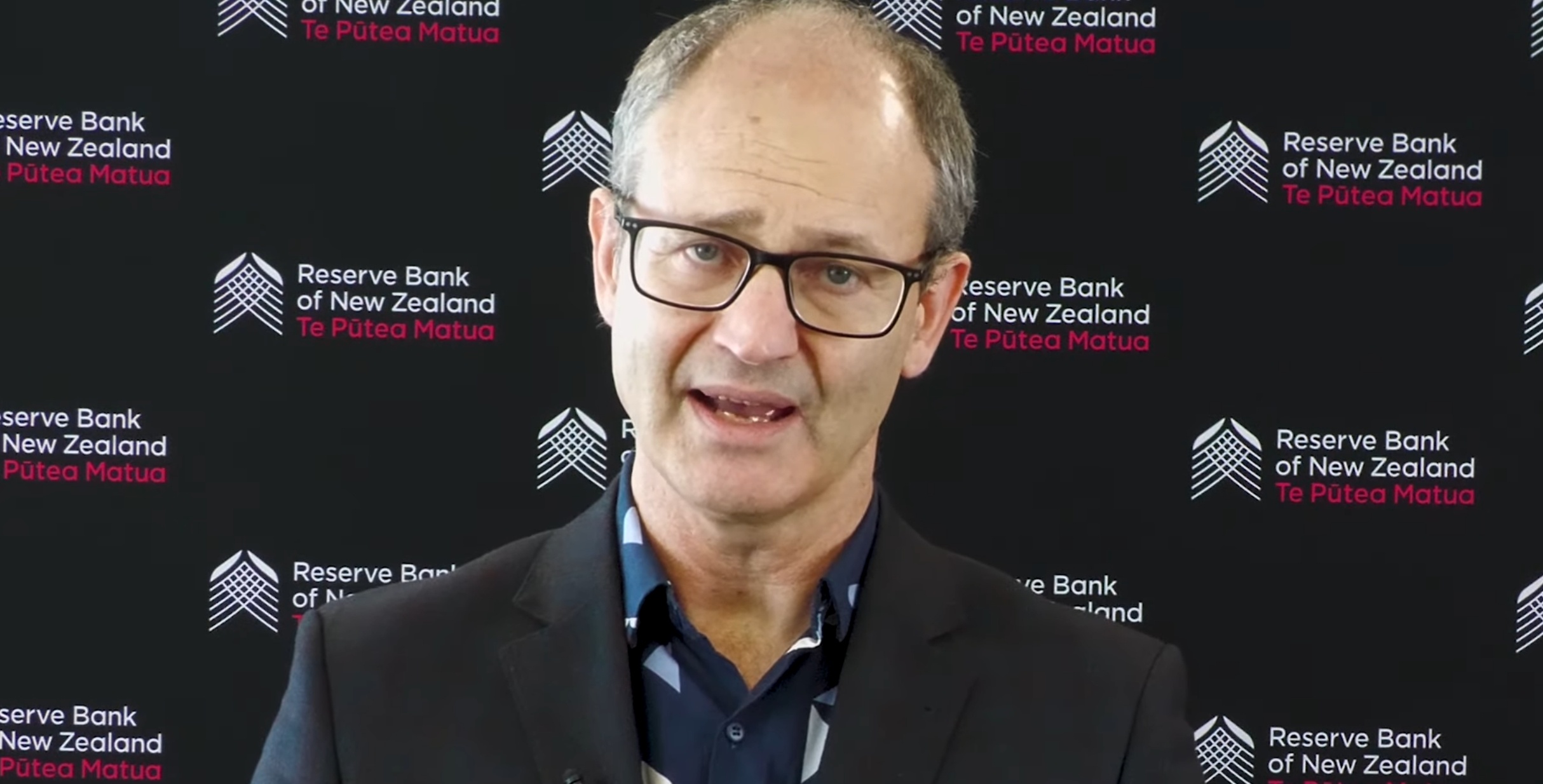
Monetary policy, inflation lowers but economic recession expected

As the price continues to rise, the central bank warns that inflation is too high and that companies and workers need to lower their expectations to avoid deeper economic downturns and higher interest rates than expected. Inflation is a phenomenon that is occurring not only in New Zealand but also worldwide, with daily prices, including food, fuel, and electricity, rising rapidly. If inflation is 7% per year, it means that overall prices are 7% higher than the same period last year. Inflation is high and widespread because strong demand has exceeded supply, companies have passed on higher costs, and workers have sought higher wages due to rising prices. Financial and monetary responses to the pandemic have supported demand, and health measures and other shocks have worsened the supply of products and labor. Paul Conway, chief economist at the central bank, said at a financial conference that raising the official benchmark interest rate to a 14-year high of 4.75% began to weaken demand, but that the economic downturn was expected to follow in the wake of rising interest rates. Inflation and interest rates are closely linked, and interest rates are a key means by which central banks around the world control inflation. The Reserve Bank of New Zealand (RBNZ) has decided to return inflation to the target range of 1-3%, but interest rate hikes cannot avoid supply disruptions and economic aftershocks and cannot compensate for people’s income losses. Paul Conway, chief economist at the central bank, said that companies, workers, and taxpayers need to accept the results of recent global and domestic shocks and lower their inflation expectations. High interest rates encourage people to spend less and save more, reducing demand and reducing inflationary pressures on the economy, and like many countries around the world, New Zealand is expected to enter a mild economic downturn in the second half of this year as demand is weakened by this tight monetary policy, Conway said. He emphasized that the depth and sustainability of the recession depends on people’s behavior and that the tighter monetary policy is needed as companies and workers absorb more of the cost increases in real profit margins and real wages. New Zealand’s inflation rate of 7.2% is close to a 32-year high, and the Reserve Bank of New Zealand (RBNZ) has raised cash rates 11 times since October 2021, becoming increasingly serious about the need to reduce consumer and business demand.
The financial market expects cash rates to rise to 5.25% after a 25bp increase and to continue to rise in May. Paul Conway, chief economist at the central bank, said people are beginning to see signs of cooling jets and that there are rubbery signs, as he said in February, of unpredictable situations. He also reiterated the central bank’s confidence in the financial soundness of the New Zealand bank amid international turmoil, such as the recent bankruptcy of the second-largest Silicon Valley bank in U.S. history, SVB, and the acquisition of Credit Suisse, a global giant, by rival UBS Group with Swiss government support.”
긴축통화정책, 인플레이션은 낮추지만 경제 침체 예상
물가가 지속적으로 오르는 가운데 중앙 은행은 인플레이션이 너무 높으며 기업과 근로자가 예상보다 더 깊은 경기 침체와 높은 금리를 피하기 위해 기대치를 낮출 필요가 있다는 경고를 반복하고 있다.
인플레이션은 뉴질랜드 뿐만 아니라 전 세계적으로 나타나는 현상으로 식료품과 연료, 전기를 비롯한 일상 물가가 빠르게 상승하고 있다. 만약 인플레이션이 연 7%라면, 그것은 지난해 같은 기간에 비해 전반적인 물가가 7% 더 높아졌다는 것을 의미한다.
강한 수요가 공급을 초과하고 기업이 더 높은 비용을 전가하고 상승하는 물가로 근로자가 더 높은 임금을 추구했기 때문에 인플레이션이 높고 광범위하다. 팬데믹에 대한 재정적, 통화적 대응은 수요를 뒷받침했고 보건 조치 및 기타 충격은 제품과 노동력의 공급을 악화시켰다.
중앙은행 수석 이코노미스트인 폴 콘웨이는 금융 컨퍼런스에서 공식 기준금리를 14년 만에 최고치인 4.75%로 올리는 것이 수요를 둔화시키기 시작했지만, 금리 상승의 여파로 경제 침체가 예상된다고 말했다.
인플레이션과 금리는 밀접하게 연결되어 있고, 금리는 세계 각국의 중앙은행이 인플레이션을 통제하는 주요 수단이다.
뉴질랜드 중앙은행(RBNZ)은 인플레이션을 1~3%의 목표 범위 내로 되돌리겠다고 결정했지만, 금리 인상은 공급 중단과 경제 후폭풍을 피해갈 수 없으며 사람들의 소득 손실을 보상할 수 없다고 말했다.
기업과 근로자, 납세자들이 최근의 글로벌 및 국내 충격의 결과를 받아들이고 인플레이션 기대치를 낮추어야 한다고 중앙은행 수석 경제학자 폴 콘웨이는 말했다.
높은 이자율은 사람들이 덜 쓰고 더 많이 저축하도록 장려해 수요를 줄여 경제의 인플레이션 압력을 줄이고, 전 세계 많은 국가에서와 마찬가지로 뉴질랜드는 이러한 긴축 통화 정책으로 인해 수요가 둔화되면서 올해 후반에 뉴질랜드 경제가 완만한 경기 침체에 들어갈 것으로 예상한다고 중앙은행 경제학자 폴 콘웨이는 말했다.
그는 불황의 깊이와 지속성은 사람들의 행동에 달려 있고, 기업과 근로자가 각각 실질 이익 마진과 실질 임금의 비용 증가를 더 많이 흡수할수록 통화 정책의 긴축 필요성이 줄어들고 인플레이션 압력이 더 빨리 완화된다고 강조했다.
뉴질랜드의 인플레이션은 연 7.2%로 32년 만에 최고치에 근접했으며, 이로 인해 중앙은행(RBNZ)에서는 2021년 10월 이후 11번 연속으로 현금 금리를 인상했고, 소비자 및 기업 수요를 둔화시킬 필요성에 대해 점점 더 심각해지게 되었다.
금융 시장의 기대치는 25bp 상승한 후 5월에도 비슷한 규모의 상승이 이어져 현금 금리를 최고치인 5.25%로 끌어올리고 있다.
중앙은행 수석 이코노미스트인 폴 콘웨이는 사람들이 제트기를 식히는 징후를 보기 시작했다며, 예상할 수 없는 상황에 있지만 지난 2월에 말한 바와 같이 고무적인 징후가 있다고 말했다.
그는 또한 최근에 미국 역사상 두 번째로 큰 실리콘밸리 은행(SVB)이 파산하고, 세계적인 거대 기업인 스위스계 투자 회사 크레딧 스위스(Credit Suisse)가 유동성 위기에 처한 후 스위스 정부의 지원으로 라이벌인 UBS 그룹에 전격 인수되는 등의 국제적인 혼란 속에서 뉴질랜드 은행의 재무 건전성에 대한 중앙은행(RBNZ)의 확신을 반복했다.

